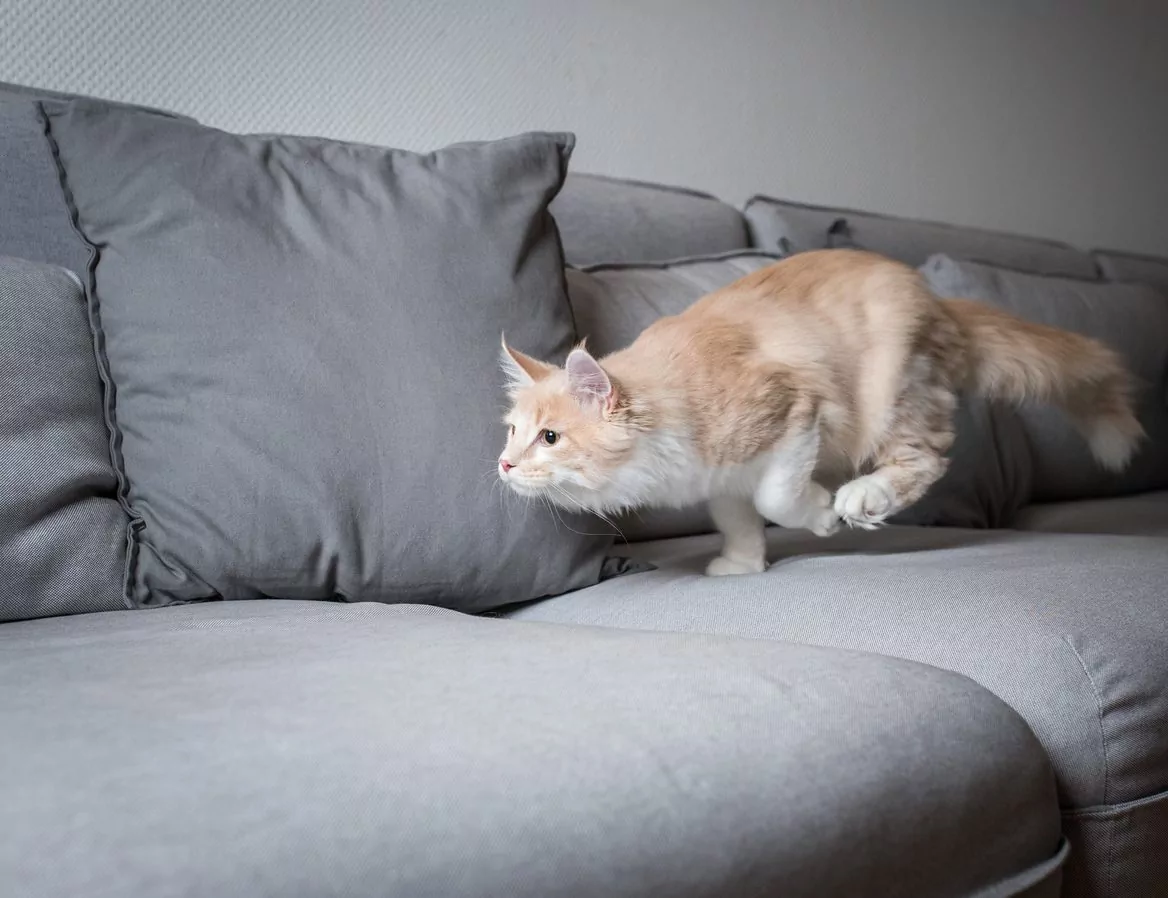Have you ever heard of zoomies? Does your cat get zoomies often? What does this mean, and is it anything to be worried about?
The term “zoomies” refers to bouts of sudden energy cats may experience that cause them to run around frantically throughout the home. The good news is that feline zoomies are perfectly normal and are just as common as canine zoomies. They aren’t typically a cause for concern, and they don’t usually mean anything is wrong with your cat.
In the article below, you’ll find more information about why cats may experience zoomies and what they may mean for your own cat, too. Read on to find out more!
After Using the Litter Box
There is no one answer that explains why cats tend to zoom away after they use the litter box. Some feline behavioral specialists believe this habit comes from nature, where wild cats would want to distance themselves from their waste quickly to avoid predators finding them. Others believe this occurs because cats must use a lot of energy to defecate and then want to burn off the rest of this energy through zoomies.
While no one knows the true cause of litter box zoomies, if your cat starts charging around the home after pooping, this is normal!
After Sleeping a Long Time
Many cats who have zoomies experience them after they’ve been asleep for several hours at a time. When cats are deeply asleep and resting throughout the day, they store up energy to use during their waking hours. Some cats may need to burn off a lot of this energy all at once after they wake up, and they may do this through zoomies.
Typically, this behavior is more common in younger cats and kittens. Older cats may take longer to get up and moving after a lengthy nap, so they may be less likely to develop this particular type of zoomies—although they certainly still can.
When You Get Home
Some cats are so happy about their owners returning home after being gone for the day that they can’t contain their energy and must zoom around the home for a little while. A cat who greets you at the door and then rushes off to play or zoom is happy to see you!
Cats may also become so overstimulated by the return of their human family members that they start up a play-fight with other cats in the household. This is also normal behavior, although it can be overwhelming to you when you first get home from work.
At Mealtime
Some cats may become so excited about mealtime that they develop a few rounds of zoomies. Although this behavior is less common in cats than it is in dogs, zoomies of excitement about getting fed can still happen in cats as well.
If you notice your cat’s zoomies start up right before or right after she typically gets fed, then you may be able to safely assume food is the cause of this behavior. And if she calms down again shortly, then you don’t have to worry about her.
Playing
If your cat’s zoomies tend to happen most frequently when she’s playing, this is also entirely normal. Cats may become overstimulated during playtime, and they may need to blow off some steam by running around the house for a little while.
This behavior can happen when cats play with each other or when they play with their favorite toys. Catnip toys can sometimes contribute to zoomies, but even cats who never play with catnip toys may still experience this behavioral phenomenon. Kittens and young cats are more likely to have zoomies, but even older cats can have this experience sometimes, too.
Conclusion
Most of the time, zoomies are a normal part of a cat’s life. If your cat experiences zoomies now and then, or even if she has this experience once or twice a day, this isn’t anything to worry about. Just pay close attention to her behavior during her zoomies to ensure she is relaxed and content, rather than in pain or upset about something.
If you have any further questions or concerns about your cat’s health, wellness, or habits, you should talk to your veterinarian for more information. Your veterinarian can be a valuable resource to help you better understand the health needs of your feline friend.
If you are looking for a cat behavior expert near Matthews, NC contact our team at Caring Hearts Animal Hospital. Our team is Fear Free Certified. Make an appointment for your cat by calling us at (704) 893-2799 or by scheduling an appointment online.

